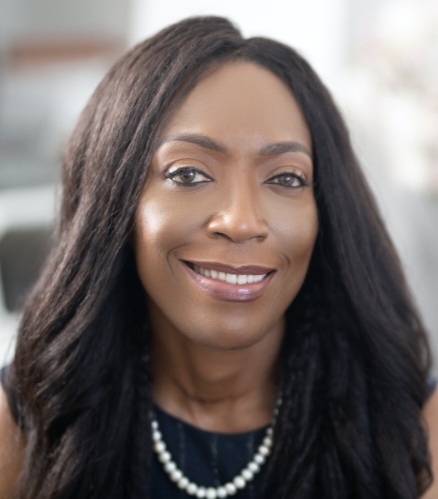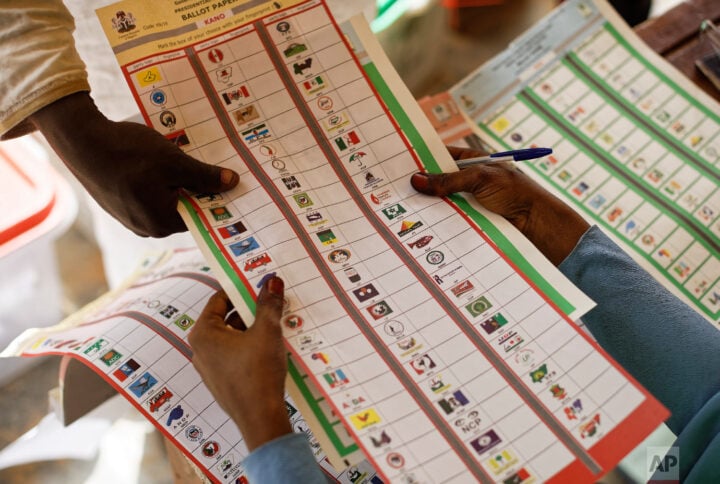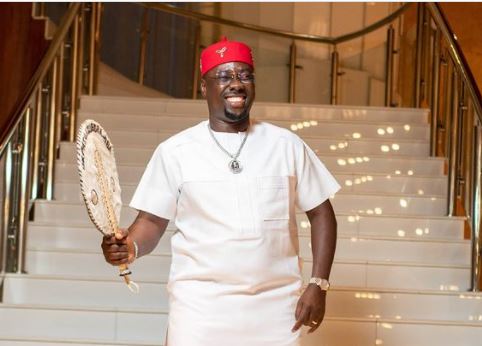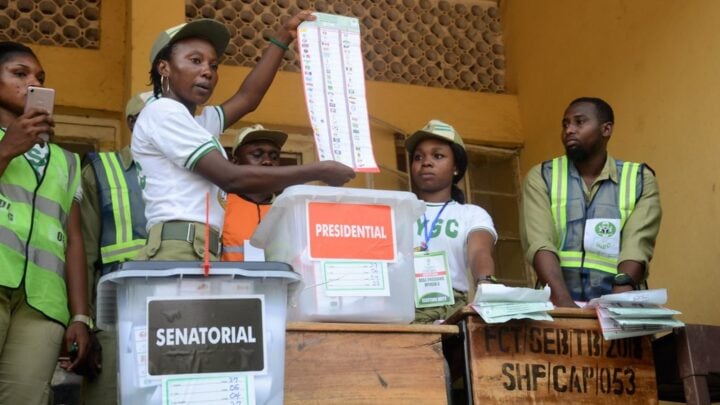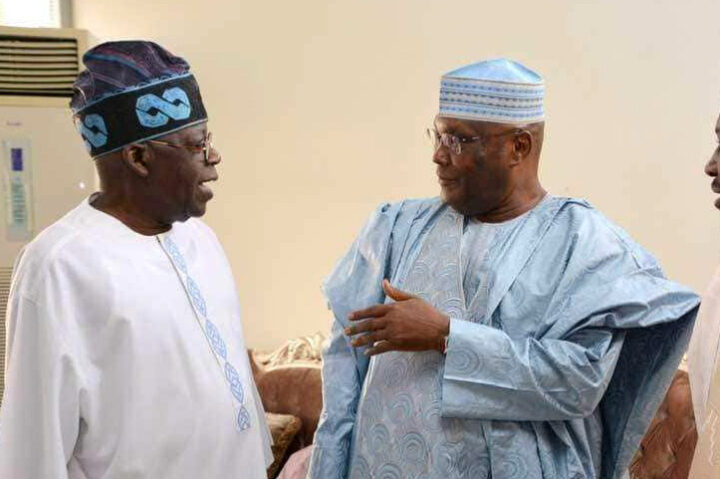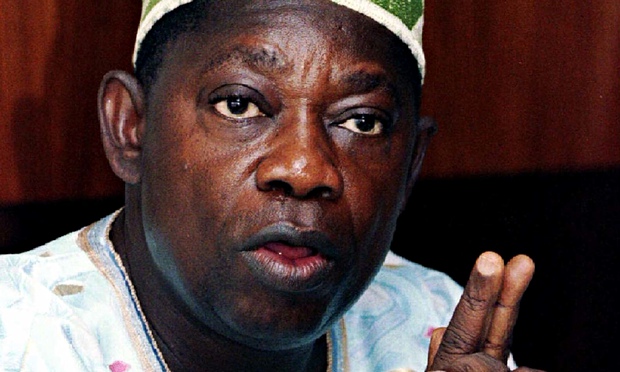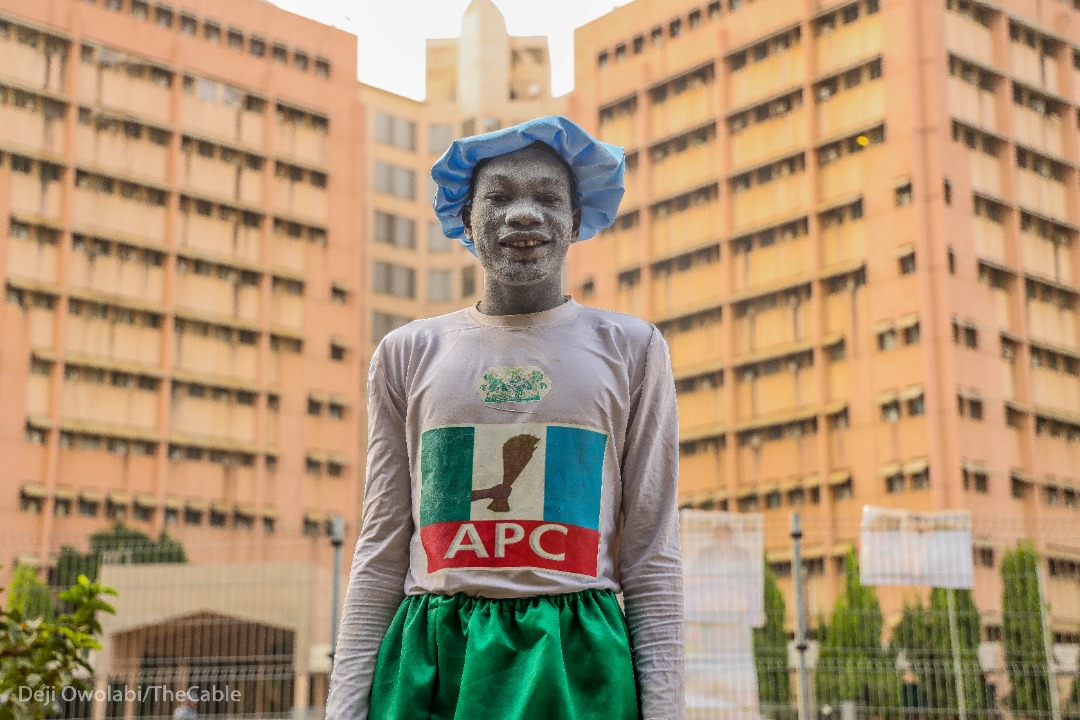An electoral officer hands a ballot paper to a voter at a polling station in the village of Tumfafi, near Kano, in northern Nigeria Saturday, Feb. 23, 2019. Nigerians are going to the polls for a presidential election Saturday, one week after a surprise delay for Africa's largest democracy. (AP Photo/Ben Curtis)
Over the last couple of weeks, we have all been watching different events unfold in Nigeria’s political landscape- baffling accounts of the double-crossing roles played by delegates as well as the horse-trading taking place among candidates. We have also read several speculative and disparaging things written about candidates, all fuelled by their opponents and mostly driven by emotional outbursts from different interest groups.
I have mostly kept away from party political discussions because I contend that we need to go back to the basics to consider what governance structure will enable Nigeria to truly develop. We need to ask if pursuing a pluralistic form of democracy with numerous small interest groups, scrambling for different things, work in our favour.
To start off with, we willingly agreed to import this alien Western democracy, by initially following the parliamentary system, despite our different context – ethnic ideologies, histories, and cultures. The fact is that the institution of democracy was developed elsewhere under different circumstances for a different group of people. Therefore, by design, it is likely to fail us because there is a disconnect between the institution and our realities.
Thus, we ought to have created our own form of “democracy” and our own governance structures and institutions instead of us copying and pasting western style ideologies. The resultant effect may have been that we have become more divided than ever before.
Advertisement
After the parliamentary system, the civil war, and a series of military governments, we ran from pillar to post and decided that the best model for us to adopt, the second time around, is the American presidential system in 1979. Again, another example of us importing a model to copy and paste. This is the model that persists today. Why are we always in the habit of adopting models from foreigners instead of taking time out to go back to our roots to discover how our societies were previously organised and governed prior to colonialism to create a system that will work for us?
I dare say, that this form of democracy, like other imported culturally biased institutions, such as our constitution, legal system, education system, religions, and so many other ideologies are examples of the proverbial “mirrors” and “shiny objects’, brought into the continent as gifts given to the gullible leaders of old during the pre-slavery/colonial eras. In return, these impressionable leaders, on receiving these glittery gifts, without questioning, exchanged them for our most precious assets- human beings, land, and vast resources! The inequality of exchange of resources continues today as we have grown to believe that imported ideologies and ways of doing things are more superior to our mode of knowledge production, our traditions, and cultures.
Don’t misunderstand me- I am in support of the main goals of democracy and consider them to be desirable because, according to the author, Ali Mazrui, it is meant to ensure- that our leaders are accountable, that citizens participate, that the society is open and that there is social justice for all. However, I posit that our means of adopting democracy is faulty because we have not taken out time to consider our various unique culture, context, and capability to make it relevant to us and work for us. Therefore, instead of doing the same thing over again every four years, and ending up with more distrust and discord, it is about time we start looking for the best Nigerian (African) way to achieve these universal goals from our own model of democracy.
Advertisement
Also, we cannot keep adopting western ways of doing things without developing technical know-hows and know-whys that will help us move forward as a country. Let us remember that institutions and constructs are outcomes of societal evolutions, so the least we must do is to incorporate our own tradition, culture, governance structure, and mode of knowledge production for a truly Nigerianised model.
It has been suggested that democracy and development go hand in hand- though there are different school of thoughts regarding which should come first. We should start dialoguing to seek out ways to construct a system that will enable us to build a sustainable state. We need to move from seeking out “messiahs” and “magicians” that make unattainable claims and promises in a faulty system. Let us instead redesign our own Nigerian system for Nigerians by Nigerians. Consider the fact that the south-east Asian countries achieved success by following a developmental state model from the 1960s, which involved strong governments that set clear missions and worked collaboratively with the private sector to build their economy.
We too can build a successful country if we seek out strong sustainable development-centred democratic model. Nigeria is too important to have “start and stop” government policies. We need a system that will enable our leaders to start governing for our future and not ruling for the present. We need to go back to the drawing board to redesign our models of governance and institutions to take into consideration our context and our needs. We need African leaders for Africans because without strong leaders no matter who wins an election or comes into power, Africans will continue to be ruled by the “tutelary” governments in Western countries.
Sadly, if we don’t fix our country/continent, we will continue to lose our brilliant minds to more advanced countries just as we did during the slave trade. The slave trade involved the most physically abled citizens forcefully taken away to build other nations, whilst today we have the most talented young people being lured away from the continent to become economic refugees as they are being lured away to build other nations.
Advertisement
Therefore, having said all these, the key question is who should lead this change? Is it government- personally, I would argue that a responsive government should drive this change? However, other observers may look towards Nigerian civil society or visionary driven Nigerian private leadership to come up with Nigerian solutions for Nigerian Institutions.
Finally, as previously suggested in one of my earlier pieces, progress can’t be made by any country if history is not shared, – in the words of the philosopher, Edmund Burke, “People will not look forward to posterity who never look backward to their ancestors.” Thus, it is imperative that we commence teaching history in Nigerian schools to help future generations understand their collective past to build a more robust future!
Views expressed by contributors are strictly personal and not of TheCable.
Add a comment
